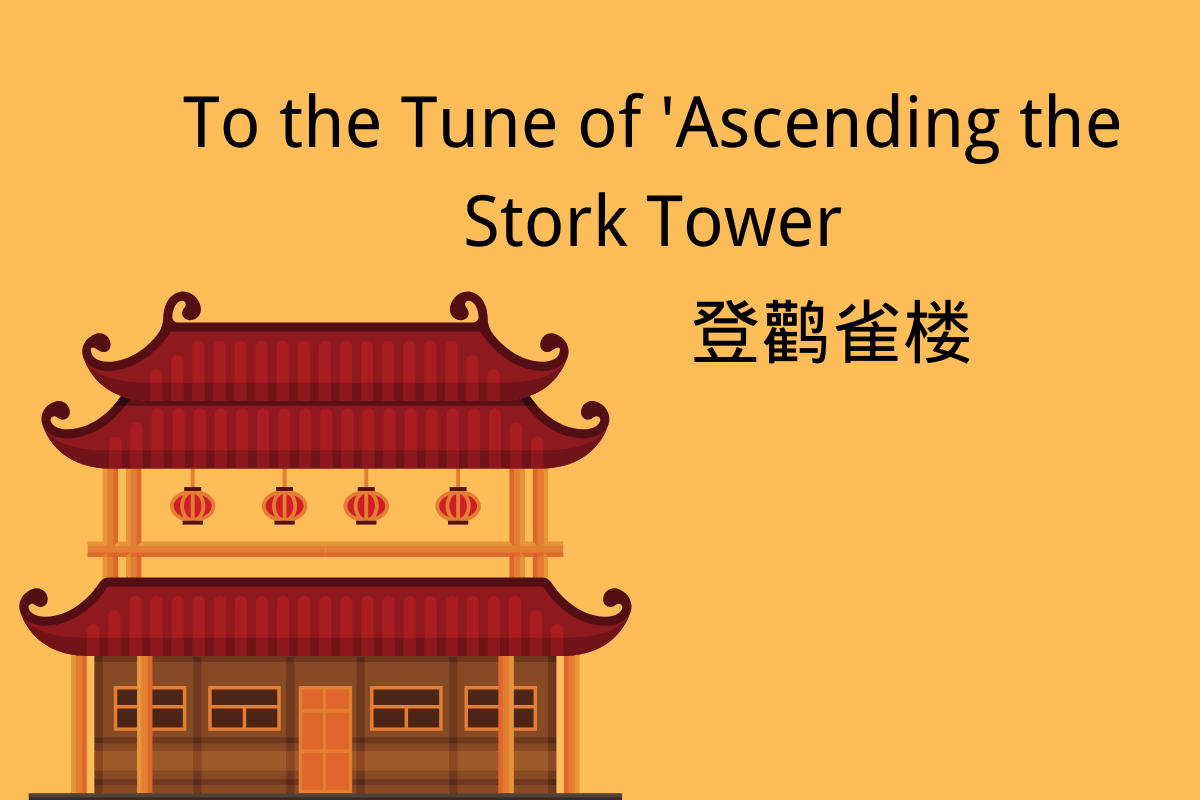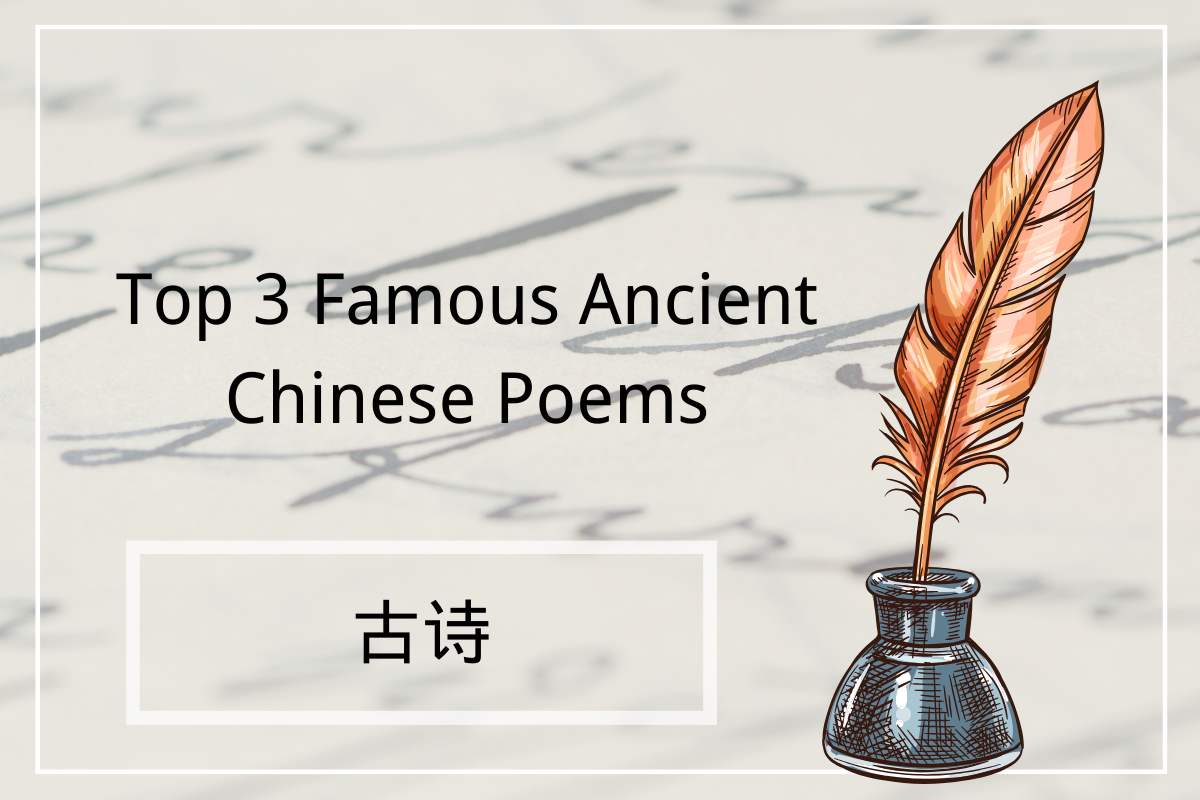Top 3 Famous Ancient Chinese Poems
Ancient poetry is a treasure of Chinese culture, carrying millennia of wisdom and emotions. Among the numerous classics, three are hailed as the pinnacle of Chinese classical poetry, leaving a profound impact on posterity. Let's delve into these three ancient Chinese poems, savoring the exquisite beauty within.
"Thoughts on a Tranquil Night" - Li Bai
床前明月光,疑是地上霜。
举头望明月,低头思故乡。
Pinyin:
Chuáng qián míng yuè guāng, yí shì dì shàng shuāng.
Jǔ tóu wàng míng yuè, dī tóu sī gù xiāng.
Interpretation:
This is one of the representative works of Li Bai, a prominent romantic poet from the Tang Dynasty. The poet, under the moonlight before his bed, sees what seems like frost on the ground. Gazing at the bright moon above, he is filled with thoughts of his hometown. The clear imagery and deep yearning form the core of this poem.

Enjoying wine'" - Li bai
君不见黄河之水天上来,奔流到海不复回。
君不见高堂明镜悲白发,朝如青丝暮成雪。
人生得意须尽欢,莫使金樽空对月。
Pinyin:
Jūn bù jiàn Huáng Hé zhī shuǐ tiān shàng lái, bēn liú dào hǎi bù fù huí.
Jūn bù jiàn gāo táng míng jìng bēi bái fà, zhāo rú qīng sī mù chéng xuě.
Rén shēng dé yì xū jìn huān, mò shǐ jīn zūn kōng duì yuè.
Interpretation:
The Tang Dynasty's great poet Li bai portrays the brevity of life and the joy it brings. Through metaphors of the Yellow River and the bright hall's mirror, he expresses the relentless flow of time and the inevitable aging process. The line "In life, one must be happy while one can" calls for an appreciation of life's fleeting moments.

"Ascending the Stork Tower" - Wang Zhihuan
白日依山尽,黄河入海流。
欲穷千里目,更上一层楼。
Pinyin:
Bái rì yī shān jìn, Huáng Hé rù hǎi liú.
Yù qióng qiān lǐ mù, gèng shàng yī céng lóu.
Interpretation:
This poem by Wang Zhihuan, a literary figure from the Tang Dynasty, uses concise language to depict the grandeur of nature and the vastness of life. The phrase "climb another floor" expresses the longing for continuous self-improvement and reaching higher realms, praising the ambitious attitude of pursuing loftier goals.

The Poetic Masters of Tang Dynasty: Li Bai, Du Fu, and Wang Zhihuan
Li Bai (李白):
Biography:
Li Bai (701–762) is renowned as the "Poetic Immortal" of the Tang Dynasty, a prominent figure in Chinese romantic poetry. His verses exude a bold and uninhibited spirit, capturing the essence of his adventurous life. Legend has it that Li Bai traveled extensively, composing many celebrated works while immersed in the intoxication of wine.
Notable Works:
"Drinking Alone by Moonlight," "Song of Mount Lu," "Night Mooring at Maple Bridge," and more.
Du Fu (杜甫):
Biography:
Du Fu (712–770), hailed as the "Poet Sage," was a prominent realist poet of the Tang Dynasty. His poems employed a realistic approach to depict a broad spectrum of social issues, reflecting his deep concern for the turbulent times and the suffering of the people. Du Fu's life was marked by adversity, including experiences of war and poverty.
Notable Works:
"Autumn Evening," "Spring Prospect,"and more.
Wang Zhihuan (王之涣):
Biography:
Wang Zhihuan (688–742) was a Tang Dynasty literary figure, known for his mysterious life. His poetry is characterized by its ethereal and unworldly quality. Despite the lack of detailed information about his life, Wang Zhihuan's poems have secured a significant place in classical Chinese literature.
Notable Works:
"Climbing Stork Tower," a concise yet profound piece expressing a longing for self-improvement and higher aspirations.
